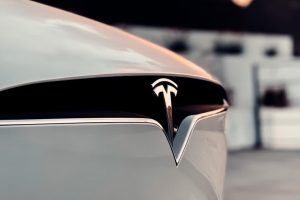- 🔄 Elon Musk changed his stance on China tariffs, initially supporting them but now opposing them.
- 🇺🇸 In January, Musk advocated for measures to prevent Chinese automakers from dominating global competitors.
- 🚫 Musk now believes that tariffs limiting foreign business are harmful to the market.
- 🗣️ At the Viva Technology Conference, Musk expressed surprise at the tariffs and opposed market distortion.
- 📈 Musk claims Tesla performs well in China without tariffs or special support.
- 🗓️ This is a significant shift from Musk’s earlier stance in January, where he supported trade barriers.
- 📊 The Biden Administration’s new tariff program targets $18 billion in Chinese products, including a 100% rate on EVs.
- 💼 The tariffs aim to protect American workers and businesses, according to The Washington Post.
- 📜 Musk has previously commented on U.S.-China tariff programs, noting their importance in avoiding trade wars.
- ⚖️ Tesla previously challenged the Trump Administration’s 2020 plan to impose tariffs on car parts.
In the ever-evolving global market landscape, Elon Musk, the CEO of Tesla, has recently flipped his stance on China tariffs. This significant shift raises several questions about the impact of tariffs on international business dynamics and market distortions. In this blog post, we’ll delve deep into Musk’s changing views, the underlying reasons, and the broader implications for the auto industry and global trade relations.
Elon Musk’s business strategies have often been subject to public scrutiny, and his recent flip on China tariffs is no exception. In January, Musk advocated strongly for measures to prevent Chinese automakers from overpowering their global competitors. However, his recent statements suggest a radical departure from this position. Let’s explore this transformation and what it means for the market.
The Initial Stance: Protectionism and Market Barriers
In January, Elon Musk was vocal about the need for protective measures against Chinese automakers. He believed that without trade barriers, Chinese companies would “demolish” their international competition. This stance aligned with protectionist policies that prioritize domestic industries by imposing tariffs on imported goods.
Key Points from January:
- Trade Barriers: Musk supported the idea of implementing trade barriers to protect domestic companies.
- Market Dominance: He warned that Chinese automakers could dominate the global market if no barriers were put in place.
The Shift: Advocating for Free Market Dynamics
Fast forward to a recent conference, the Viva Technology Conference in Paris, where Musk expressed a surprising shift in his stance. According to Musk, tariffs that limit a foreign country’s ability to conduct business freely are detrimental to market health.
Highlights from the Recent Stance:
- Market Distortion: Musk argues that tariffs distort the market and inhibit freedom of exchange.
- Surprise Factor: Musk stated that neither he nor Tesla had requested the tariffs and he was surprised by their announcement.
- Performance without Tariffs: He highlighted that Tesla has been successful in China without needing tariffs or special support.
Reasons Behind the Shift
Musk’s change in perspective may be attributed to several factors, ranging from market performance to broader economic principles.
Economic Philosophies
Musk’s recent opposition to tariffs seems more aligned with free-market capitalism, which promotes minimal government intervention. By advocating for fewer barriers, Musk is perhaps underscoring the ability of market forces to regulate competition fairly.
Business Performance
Tesla’s performance in China has been remarkable even without the imposition of tariffs. This success may have contributed to Musk’s confidence in overcoming market competition without external protective measures.
The Biden Administration’s Tariff Program
Meanwhile, the Biden Administration has implemented a new tariff program targeting $18 billion in Chinese products, including a 100% tariff rate on electric vehicles (EVs). This measure is aimed at protecting American workers and businesses.
Details of the Program:
- Target Impact: The tariffs are set to affect various sectors, with the EV industry being significantly impacted.
- Protectionist Goals: The program is designed to safeguard American economic interests, according to The Washington Post.
Historical Context of Musk’s Tariff Views
This is not the first time Musk has commented on the tariff landscape. In April 2018, he noted that China’s plans to lower import tariffs were crucial steps in avoiding a trade war. Additionally, Tesla challenged the Trump Administration’s 2020 proposal to impose tariffs on car parts, asserting their adverse impact on the auto industry.
Broader Implications for the Auto Industry
Musk’s revised stance has broader implications for the auto industry, particularly concerning international trade and competitive dynamics.
Potential Effects:
- Increased Competition: A reduction in tariffs may promote healthy competition, encouraging innovation and efficiency.
- Market Fairness: Eliminating market distortions may lead to a more level playing field for all automakers.
- Consumer Impact: Removing tariffs could lead to lower prices for consumers, as companies would not need to adjust prices to offset tariff costs.
Conclusion
Elon Musk’s reversal on China tariffs provides a compelling case study on the complexities of global trade and market dynamics. By shifting from a protectionist stance to advocating for free markets, Musk challenges traditional views on trade barriers and opens a dialogue on the benefits of reduced governmental intervention in market operations.
Final Thoughts
Understanding these changes is crucial for stakeholders in the international trade ecosystem. Keeping an eye on how these shifts play out will be key to navigating the business landscape in an increasingly interconnected world.





